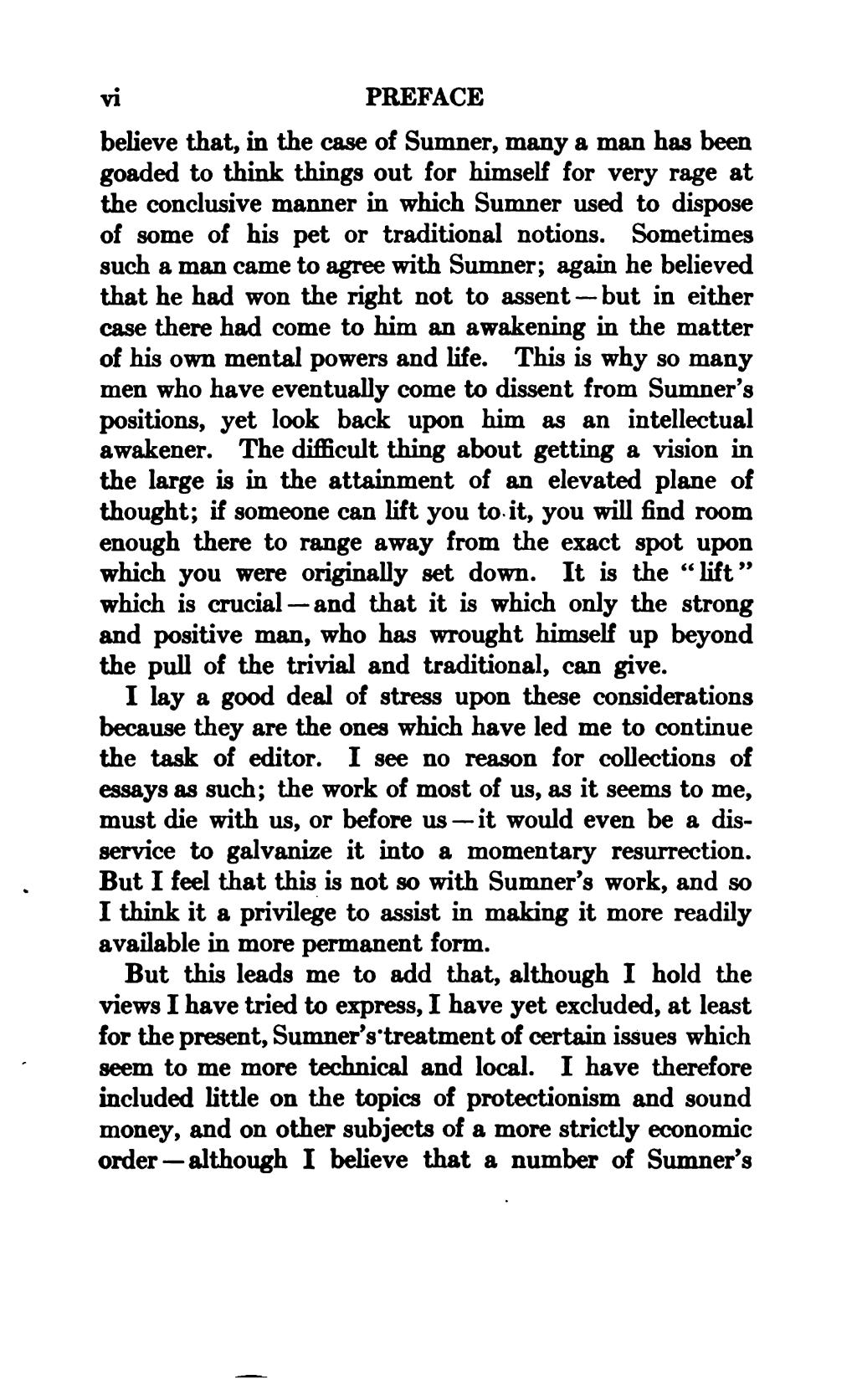believe that, in the case of Sumner, many a man has been goaded to think things out for himself for very rage at the conclusive manner in which Sumner used to dispose of some of his pet or traditional notions. Sometimes such a man came to agree with Sumner; again he believed that he had won the right not to assent—but in either case there had come to him an awakening in the matter of his own mental powers and life. This is why so many men who have eventually come to dissent from Sumner's positions, yet look back upon him as an intellectual awakener. The difficult thing about getting a vision in the large is in the attainment of an elevated plane of thought; if someone can lift you to it, you will find room enough there to range away from the exact spot upon which you were originally set down. It is the "lift" which is crucial—and that it is which only the strong and positive man, who has wrought himself up beyond the pull of the trivial and traditional, can give.
I lay a good deal of stress upon these considerations because they are the ones which have led me to continue the task of editor. I see no reason for collections of essays as such; the work of most of us, as it seems to me, must die with us, or before us—it would even be a disservice to galvanize it into a momentary resurrection. But I feel that this is not so with Sumner's work, and so I think it a privilege to assist in making it more readily available in more permanent form.
But this leads me to add that, although I hold the views I have tried to express, I have yet excluded, at least for the present, Sumner's treatment of certain issues which seem to me more technical and local. I have therefore included little on the topics of protectionism and sound money, and on other subjects of a more strictly economic order—although I believe that a number of Sumner's
